Essentially, iku means go from where the speaker is to somewhere else, and kuru means come from somewhere else to where the speaker is.
 Nhưng mà
Nhưng mà
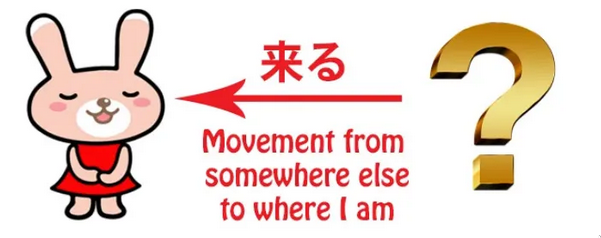 We can talk about someone
We can talk about someone 行く-ing from A to B when we are actually at C, but 来る must always mean movement toward C, the place where we are.
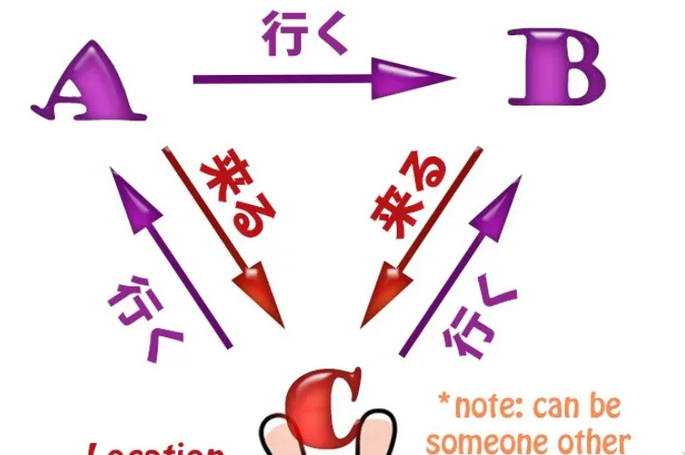 VD: So
VD: So 持ってくる means bring (to the place where I am); 持っていく means take (from the place where I am). But the place where I am can actually be a time or it can actually be a mental state of identification.
So, a very simple example is we may say 雨が降ってきた -- and we have almost an equivalent English expression: we might say It came on to rain (Nếu từ đóng vai trò là trợ động từ thì thường sẽ không dùng Kanji)
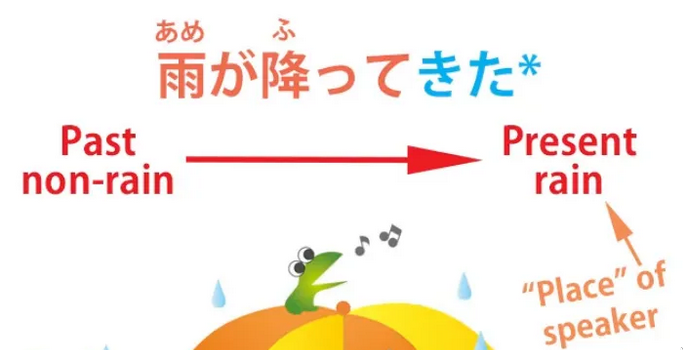 And the metaphor here is a time metaphor. Rain came towards us in time, from a time when it wasn't there to the time where we are, when the rain is there.
And the metaphor here is a time metaphor. Rain came towards us in time, from a time when it wasn't there to the time where we are, when the rain is there.
 If we say
If we say だんだん雨が降っていく, we're saying It's getting rainier and rainier and we're projecting into the future. いく is moving from where we are into the future (Tiếp tục mưa hơn, từ bây giờ cho đến một lúc sau - chẳng hạn). Chúng ta dùng いく để diễn tả sự tiếp tục (tiến lên) của thời gian, move forward, move away from us.
So, 雨が降っていく in this case implies that it has become rainy (降って来た) and that it's increasingly going to do so in the future.
Thử lấy một ví dụ "tinh tế hơn" một chút, ta có 勉強すれば、だんだん数学が分かってくる và thường dịch là if you study, you will come to understand mathematics (Nếu hiểu theo cách thường thì nên là いく chứ phải không?).
Nhưng 分かる does not mean understand. It means be understandable / be clear or literally what it actually means is do understandable.
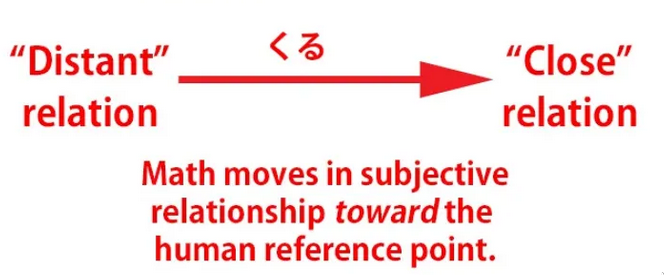 Một ví dụ khác
Một ví dụ khác
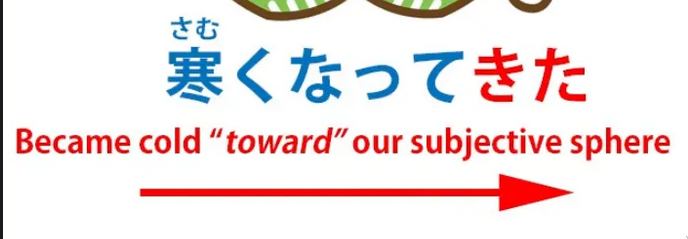 we're saying
we're saying it became cold, and adding that kita (kuru) is relating it to us: It became cold (coming toward me or us). So what we're saying is not just that it became cold, but implying that it affects me or us subjectively: Samuku natte kita (Cái lạnh đấy đang đến với mình?).
By contrast, samuku natte itta is more objective. It doesn't involve us. It doesn't imply that it in any way affected me or us. It just happened. It became colder (Kiểu "Trời đang trở lên lạnh hơn" ấy).
Thử làm "bài tập phát"